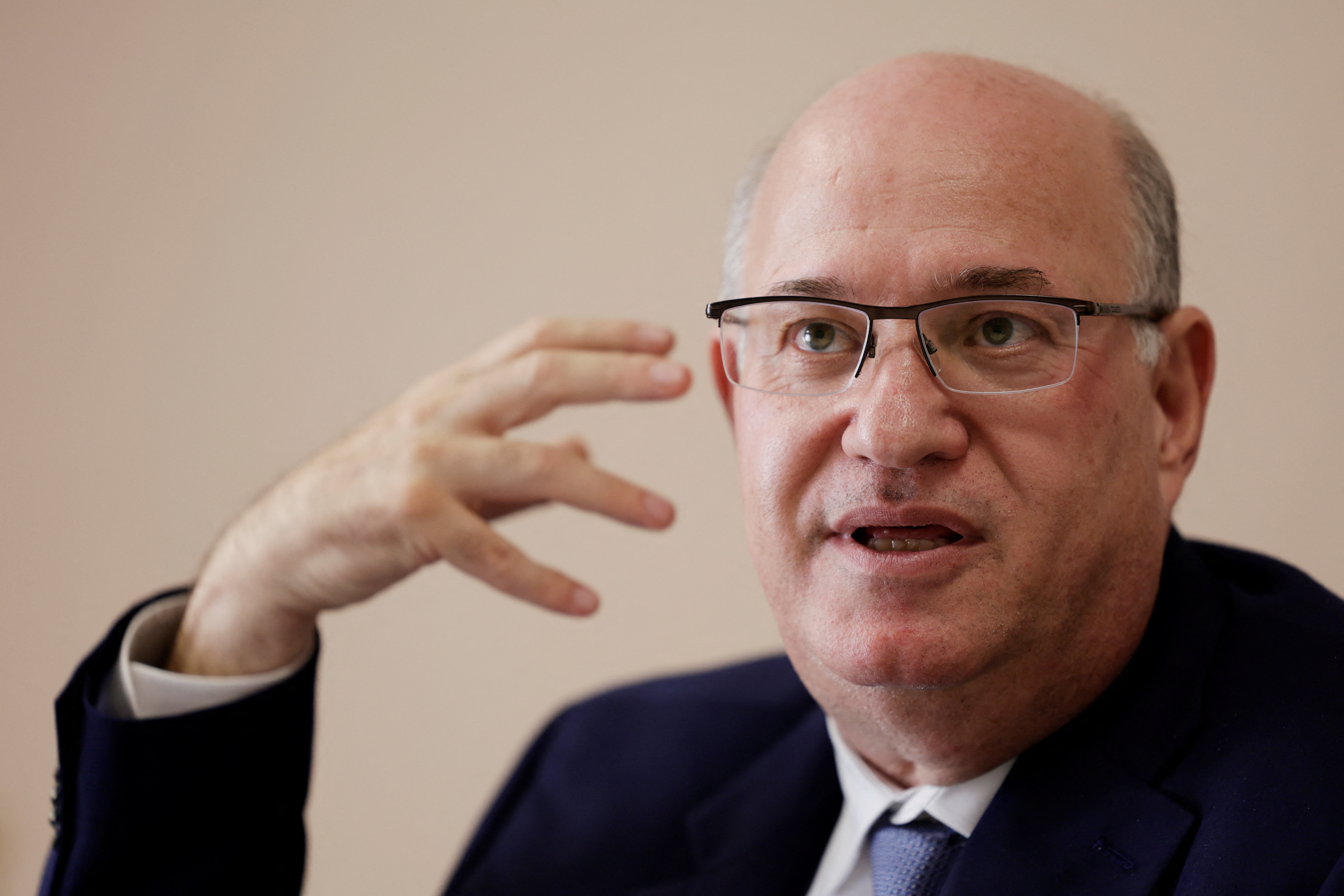
President of the Inter-American Development Bank, Ilan Goldfajn, speaks during a interview with Reuters on the third day of the annual meeting of the International Monetary Fund and the World Bank, in Marrakech, Morocco, October 11, 2023. REUTERS/Susana Vera Acquire Licensing Rights
MARRAKECH, Oct 11 (Reuters) – Inter-American Development Bank (IDB) President Ilan Goldfajn said the financial institution can expand its lending capacity to as much as $112 billion over a decade once it secures fresh capital from shareholders for its private arm.
A plan to increase capital by IDB Invest – the lender’s private sector arm – is set to be ratified at the bank’s annual meeting in March, Goldfajn told Reuters on the sidelines of the World Bank/IMF meetings in Marrakech on Wednesday.
“If we sum the efforts of the public side and the private side, we can go all the way from $34 billion together, up to $112 billion,” Goldfajn said.
Discussions around the capital raise are “going very well, because we are concentrating capitalization on the private (sector), which has models that tend to be well accepted.”
Goldfajn says that once commitments from member countries are secured, the challenge will be to ensure funds are being deployed. IDB Invest is owned by its 48 member countries, 26 of which are in the Latin American and Caribbean region.
Since taking over as IDB president Goldfajn has pledged to scale up financing for development amid a broad push by multi-lateral development banks to help countries brace for climate change and other economic challenges.
Experts say developing and emerging economies need $2.4 trillion per year to meet global climate-related costs.
MULTILATERAL COORDINATION
The IDB president said the Washington-based institution is looking into more ways to collaborate with other multilateral lenders such as IMF in the region, after recently announcing a partnership with the World Bank that tackles Amazon deforestation and climate disasters in the Caribbean.
“I think there is coordination, but we can do a better job. And the way to do it is to have agreements and go to a country with the same standards and goals,” he added.
Even if Latin America is “ahead of the curve” for being the first to rise rates after the COVID-19 pandemic hit, Goldfajn said that “member countries are a bit anxious” about the global economy for two main reasons.
“Interest rates may be high for longer, and it’s getting into the system. And they are also concerned about the cost of capital because now we are adding other issues, like what will happen with energy prices,” he said.
The U.S. has a 34% share of IDB’s voting rights, followed by Brazil and Argentina with around 11% each.
Goldfajn, who previously was the IMF’s western hemisphere division director and a former head of Brazil’s central bank, also said that green bonds need to transform into “indicator-based financial instruments” with indicators that can be measured, like deforestation and CO2 emissions.
Reporting by Jorgelina do Rosario and Elisa Martinuzzi, editing by Karin Strohecker and Toby Chopra
: .

